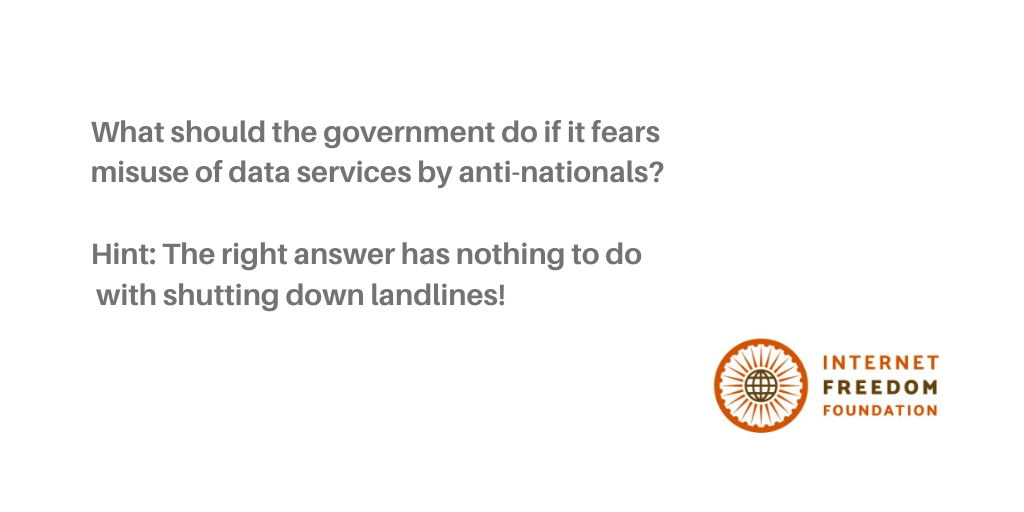
Tl;dr
In today’s hearing, Ms. Vrinda Grover began substantive arguments on behalf of Ms. Anuradha Bhasin, the Executive Editor of Kashmir Times. She argued that restrictions cannot be so severe that they extinguish the right itself. She used the government’s own statistics to show that there is no proximate relationship between introduction of internet and rise in terrorism. She also analysed the orders produced by the government to demonstrate that there was no application of mind by the state officials.
No proximate link between internet and terrorism related violence
The hearing commenced with arguments by Ms. Vrinda Grover, who is appearing for the lead Petitioner. Ms. Grover informed the bench that prepaid mobile services, mobile internet, broadband internet and SMS services were still not available in Kashmir Valley. She then explained the work structure of Kashmir Times where reporters gather news, editorial inputs are received from the Jammu office and the newspaper is then sent for printing.
Ms. Grover emphasized that restrictions on fundamental rights must be necessary, reasonable and proportionate, and the restriction cannot extinguish the right itself. She used the statistics mentioned in the government’s affidavit to demonstrate that terrorism related violence has decreased significantly in Jammu & Kashmir despite introduction of the internet in the region in 2000s. Therefore, the State’s own data shows that there is no proximate relationship between use of internet and terrorism related violence.
1885 Act?!
When Ms. Grover began explaining the provisions of the Temporary Suspension of Telecom Services (Public Emergency or Public Safety) Rules, 2017 issued under Section 7 of the Indian Telegraph Act, 1885, the bench was surprised! The judges found it difficult to believe that modern technologies such as the internet were being licensed and regulated under a colonial era 19th century law.
Ms. Grover quoted the proviso to Section 5(2) of the Telegraph Act, 1885 which states that “the press messages intended to be published in India of correspondents accredited to the Central Government or a State Government shall not be intercepted or detained, unless their transmission has been prohibited under this sub-section.” She then relied upon this proviso to argue that communication channels of the press cannot be blocked through a general order issued under the 2017 Rules, and instead, a specific order would be required.
This was followed by an analysis of the orders issued under the 2017 Rules to demonstrate complete non-application of mind by the government officials. For instance, one of the orders stated that landlines should be shutdown because there is “apprehension of misuse of data services by anti-national elements.” Ms. Grover argued that shutting down landlines on this ground was absurd because landlines can be only be used for one on one voice calls and have no relation to data services and the internet.
The hearing ended at 1:00 PM with the Court breaking for lunch and Ms. Grover will continue her arguments tomorrow.
